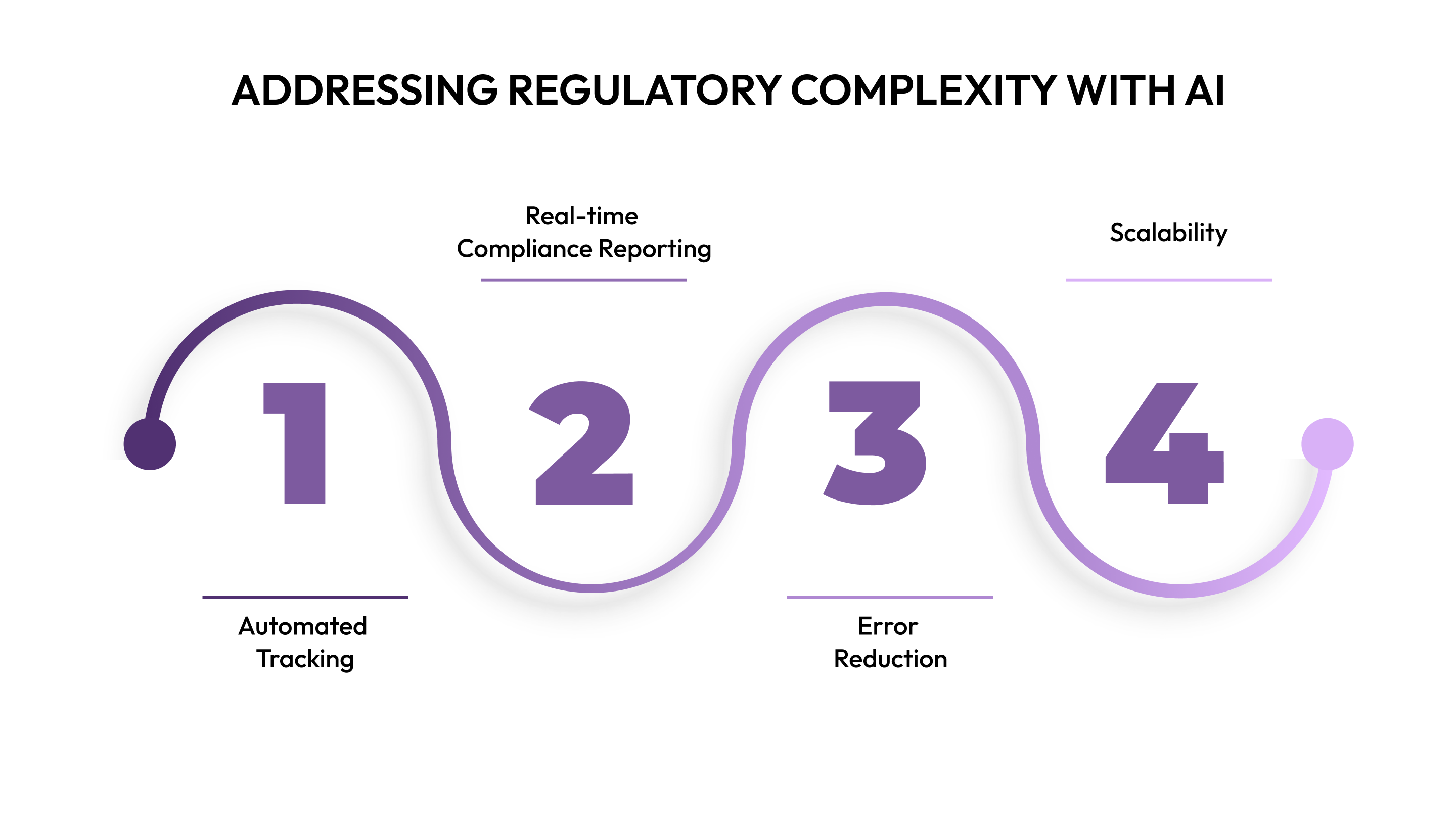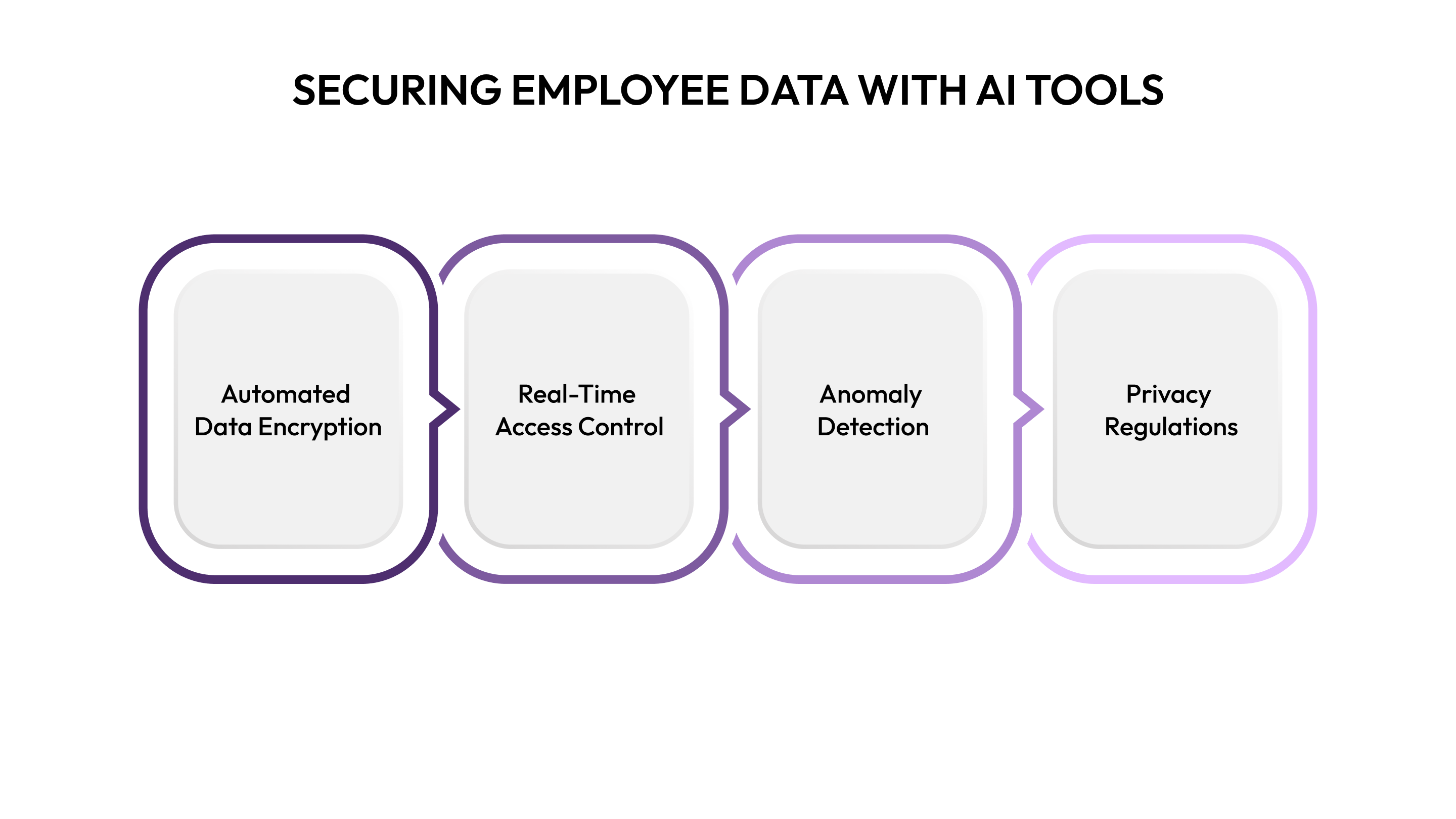AI in HR — Key Compliance & Risk Management Strategies
Ensure compliance and reduce risk as your company scales. Learn how AI can help with HR processes like compensation, headcount planning, and more.

As companies scale, managing compliance and risk becomes a challenge for HR teams in the USA. For People Ops and HRBPs in companies with 50 to 5,000 employees, this task becomes more complex as headcount increases. AI is becoming a key tool to help organizations handle these challenges while improving efficiency and reducing risk.
Between 35% and 45% of companies have adopted AI in their hiring processes, especially in fast-growing sectors like SaaS, fintech, e-commerce, and professional services. With AI, Recruiting Managers, CPOs, and CFOs can maintain compliance while improving speed and quality. AI also enables real-time collaboration and supports geo-adjusted compensation for distributed teams.
In this blog, we explore how AI can help HR teams improve compliance and risk management while increasing transparency, structure, and equity in organizations with lean HR and finance teams.
Key Takeaway
- AI in HR helps automate compensation cycles, reducing manual errors and saving time on routine tasks.
- Real-time collaboration features ensure alignment between HR, finance, and leadership, improving decision-making.
- AI-driven insights provide accurate compensation recommendations based on market benchmarks and historical data.
- AI enables faster scenario planning, allowing for quick adjustments to headcount and compensation without disrupting operations.
- Tools like CandorIQ reduce the reliance on spreadsheets and disconnected systems, streamlining compensation and workforce planning.
Addressing Regulatory Complexity with AI

Managing compliance becomes increasingly complex as organizations scale, particularly due to the constant evolution of labor laws and data protection regulations. AI automates the process of monitoring legal updates, reducing the risk of errors. This is particularly useful for budget-sensitive CFOs requiring workforce cost predictability and organizations with globally distributed or remote-first teams.
Here are key ways AI helps organizations stay compliant:
- Automated tracking of regulatory updates: AI tools monitor legal changes across multiple regions and automatically update systems.
- Real-time compliance reporting: AI tracks compliance metrics in real time, ensuring HR teams are always up-to-date.
- Error reduction: AI minimizes human errors by automating repetitive tasks, improving accuracy.
- Scalability: As organizations grow, AI adapts to increasing complexity across regions.
As you tackle regulatory compliance, fairness in recruitment and promotions is another area where AI can make a significant impact.
Ensuring Fairness in Recruitment and Promotions

Bias in hiring and promotion can lead to legal risks and employee dissatisfaction. AI ensures fairness by using data-driven decisions and reducing unconscious bias in HR processes. In mid-sized to growth-stage organizations with lean HR and finance teams, this fairness is critical for building trust and transparency in a rapidly expanding workforce.
Here’s how AI can support fairness in recruitment and promotions:
- Bias detection and mitigation: AI models identify and reduce biases in candidate selection and promotion.
- Standardized evaluations: AI ensures all candidates are evaluated based on the same criteria, making the process transparent.
- Continuous monitoring: AI helps track patterns of bias over time, allowing HR teams to adjust recruitment strategies.
- Data-driven decisions: AI makes decisions based on qualifications and skills, not subjective factors.
Once you’ve addressed fairness in recruitment, securing employee data becomes the next priority to ensure compliance and trust.
Securing Employee Data with AI Tools

With stricter data protection laws, securing employee data is more critical than ever. AI helps automate data security, ensuring compliance while protecting sensitive information. For organizations with distributed teams, AI ensures that privacy and compliance standards are met regardless of where employees are located.
Here’s how AI enhances data security in HR operations:
- Automated data encryption: AI can encrypt sensitive employee data, ensuring it is protected from unauthorized access.
- Real-time access control: AI tools control access and monitor who views sensitive data at all times.
- Anomaly detection: AI systems identify unauthorized access, preventing potential breaches.
- Compliance with privacy regulations: AI ensures that HR teams stay compliant with changing data protection laws.
As employee data security becomes more secure, managing and preventing HR risks is the next step for compliance.
Also Read: Getting Started with Employee Data Management Systems
Monitoring and Preventing Risks in HR Operations
Identifying potential risks early is crucial for avoiding compliance issues. AI tools help HR teams predict risks and address them before they escalate. For budget-sensitive CFOs requiring workforce cost predictability, AI supports better decision-making by preventing costly HR errors.
Here are ways AI improves risk management in HR:
- Predictive analytics: AI identifies patterns that indicate potential compliance risks, such as wage discrepancies or misclassifications.
- Automated audits: AI performs regular audits to ensure compliance with laws and regulations.
- Risk alerts: AI notifies HR teams about potential risks, giving them time to act.
- Data-driven decisions: AI enables HR teams to make informed decisions based on data, reducing the chance of errors.
Now that risks are better managed, building an ethical AI approach ensures fairness and transparency across all HR functions.
Building an Ethical Approach to AI in HR

Ethical concerns are crucial when implementing AI in HR processes. Ensuring fairness and transparency helps maintain trust within the organization and protects employee rights. HR teams with 1–10 people handling compensation operations need to be mindful of how AI decisions impact employees across all levels.
Here’s how to ensure ethical AI use in HR:
- Establish transparent AI governance: Develop policies for using AI in hiring, promotions, and performance reviews to ensure ethical practices.
- Bias detection and correction: Regularly audit AI systems to prevent bias from affecting HR decisions.
- Transparency: Clearly communicate to employees how AI is being used in HR processes.
- Continuous education: Train HR teams on the ethical implications of AI and how to address potential issues before they arise.
With ethical AI in place, AI tools like CandorIQ can simplify compensation and headcount planning while ensuring fairness and transparency.
CandorIQ: Simplifying Compensation and Headcount Planning

CandorIQ helps HR and finance teams manage compensation and headcount planning by consolidating multiple processes into a single platform. It eliminates spreadsheets and disconnected processes to help HR teams become strategic partners.
The platform provides transparency, structure, and equity, which is critical for managing compensation and headcount in mid-sized to growth-stage organizations.
Here’s how CandorIQ simplifies compensation and headcount planning:
- Compensation & Payband Builder: Define pay bands by location, department, and job level to ensure fair compensation practices.
- Compensation Cycle Automation: Automate merit and bonus reviews, track budgets, and ensure timely approvals with built-in workflows.
- Candidate Offers: Provide clarity on compensation packages, including salary, equity, bonus, and benefits, boosting retention.
- Headcount Scenario Planning: Model future organizational changes and compare hiring scenarios against budget thresholds.
- Headcount Requests & Approvals: Streamline headcount approval workflows, reduce delays, and sync with ATS and finance systems for faster decision-making.
- Workforce Management: Monitor open roles, attrition rates, and promotion trends to align actuals with workforce plans.
- AI Agent: Get automated compensation recommendations based on market data, ensuring competitive and fair pay.
By integrating CandorIQ into your HR operations, you can improve compensation planning while ensuring compliance, fairness, and transparency.
Conclusion
AI tools offer solutions for managing compliance, risk, and HR operations in growing organizations. By automating key tasks, AI improves fairness, accuracy, and decision-making. From compensation management to employee development, AI supports HR teams in making data-driven decisions.
If you're ready to simplify HR processes, book a demo today to see how CandorIQ can help manage compensation, headcount, and retention more effectively.
FAQs
Q: How can AI improve compliance in HR?
A: AI helps HR teams automate compliance tasks, monitor legal updates, and ensure regulatory adherence. It reduces errors and keeps companies compliant across regions.
Q: How does AI ensure fairness in recruitment?
A: AI evaluates candidates based on skills and qualifications, removing human biases. It ensures consistent, data-driven assessments across all applicants for a fair process.
Q: Can AI tools handle the complexity of global compliance?
A: Yes, AI tools track international labor laws, adjust pay scales, and generate reports. They simplify compliance for organizations with globally distributed teams.
Q: How does CandorIQ help with compensation management?
A: CandorIQ automates compensation cycles, builds pay bands, and ensures pay equity. It integrates with finance systems, making compensation decisions more accurate and consistent.
Q: Is AI suitable for smaller HR teams?
A: AI tools are perfect for lean HR teams in fast-growing organizations. They automate tasks like compensation management, allowing teams to focus on strategic decisions.
Ready modernize your workforce and compensation strategy?
See how CandorIQ brings workforce planning and compensation together with AI.


